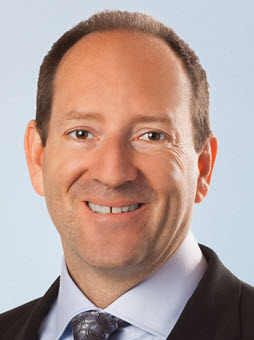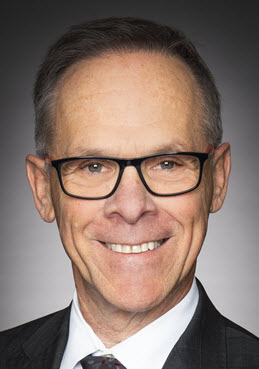What was once a hush-hush topic has become one of the most important discussions in the industry
Staff Writer
Farms.com
Recently, Canadian farmers and other members of the ag industry have devoted more attention to a topic that often used to be relegated to the privacy of the home.
We’re more openly discussing our mental health and methods to support other members of our community.
A big shift came in the wake of Dr. Andria Jones-Bitton releasing the results from a national survey conducted between Sept. 2015 and Feb. 2016. She is the director of well-being programming in the Ontario Veterinary College at the University of Guelph.
In total, 1,100 farmers from across Canada responded to the survey. Roughly 45 per cent of surveyed producers had high stress and 67 per cent had a high risk of burnout, Jones-Bitton found.

This survey provided important insights into the mental health of Canadian farmers.
The survey gave “some actual quantitative data; a lot of it had been speculative before that. Now we have some alarming statistics from the (research) about our producers across Canada,” said Adelle Stewart. She’s the executive director of Do More Ag, a national not-for-profit organization that focuses on mental health in the agricultural industry.
“The conversation (about mental health in ag) started and has continued.”
Adelle Stewart
Getting the ball rolling
Since producers did not commonly talk publicly about mental health, it was hard to know what to expect during a mental health panel at a 2017 Agriculture Producers of Saskatchewan Association (APAS) meeting held in Saskatoon. The panel featured Darren Howden, the senior vice-president of Prairie operations for Farm Credit Canada (FCC), and Kim Keller, a farmer near Melfort, Sask.
“We didn't know how this (subject) would land with this audience. Nobody talked about mental health. The average age was probably 65 and up. We did our panel, asked the questions and then had an open mic,” said Howden.
A farmer in his 70s approached the microphone and Howden worried what would be said next.
“The first thing out of his mouth was, ‘It's about damn time we started talking about mental health in ag. This has been a problem, it's been around my entire life, it's always been here. If I count the number of friends and neighbours I've lost to suicide, I'd run out of fingers.’ That was the first time we really started to see the need for” mental health awareness, Howden told Farms.com.
 Soon after the APAS meeting, ag industry stakeholders launched Do More Ag. Keller helped found the organization and FCC serves as a big supporter. Jointly, FCC and Do More Ag decided to host mental health first aid workshops to help producers, Howden said.
Soon after the APAS meeting, ag industry stakeholders launched Do More Ag. Keller helped found the organization and FCC serves as a big supporter. Jointly, FCC and Do More Ag decided to host mental health first aid workshops to help producers, Howden said.
Organizers started by offering 12 workshops in communities across Canada. Community leaders had to apply to host a workshop. In the first round, approximately 130 communities applied, he said.
“We thought holy smokes, there is way more demand for this than we'd ever thought,” said Howden.
From this initial offering, FCC and Do More Ag continued to increase the conversation about mental health in the ag industry. Discussions expand annually as increasing numbers of companies and organizations participate.
Darren Howden
Initially, a few people – like Keller – drove the conversation. Over time, things changed.
“Now, it's every other farmer driving that conversation and it’s pretty incredible to see. If we know these conversations are happening at ag events and on social media, we know they're also happening at kitchen tables or in the shop. That's a pretty big change culturally to have in an industry like agriculture,” said Keller.
Government involvement
In 2019, the Canadian Standing Committee on Agriculture and Agri-Food launched a study titled “Mental health: A priority for our farmers.”
The members of the committee worked with people in the industry to gather information, said Pat Finnigan. He chairs the committee and serves as a Liberal member of parliament. He also farms in New Brunswick.
 Information gathered for the study “opened up something that a lot of people knew, but nobody expected that (farmers’ mental health) was such a problem. I can recall a lot of the statements made there. They were really emotional” and showed the depth of the issue, said Finnigan.
Information gathered for the study “opened up something that a lot of people knew, but nobody expected that (farmers’ mental health) was such a problem. I can recall a lot of the statements made there. They were really emotional” and showed the depth of the issue, said Finnigan.
In May 2019, the committee published its report, which included 10 recommendations for federal government action.
These recommendations included accelerating the deployment of high-speed Internet infrastructure in remote regions and tailoring mental health care and insurance coverage to farmers’ needs.
The federal election occurred in Oct. 2019 and the pandemic disrupted parliament beginning in March. As a result, the federal government has yet to respond to the report but Finnigan hopes that response is the next step.
Pat Finnigan
Help is available
While many moving pieces are at play in the conversation about mental health in the ag industry, some of the changes take time to enact. Every day, however, some farmers struggle. Producers have a range of resources to consult for help.
Representatives of national organizations like the Canadian Agricultural Safety Association (CASA) can direct farmers to provincial organizations that can assist, said Robin Anderson, the communication co-ordinator for CASA.
“We really try to amplify our partners’ messaging,” Anderson told Farms.com. “They're the boots on the ground; they're the frontline support. So, we do what we can to amplify that messaging and then try to get supports in place for farmers to increase mental health awareness in their operations.”
CASA staff also highlighted mental health awareness in the Building Wellness on the Farm series as part of the 2019 Canadian Agricultural Safety Week. A safety week occurs annually during the third week of March and the theme varies by year.
“A healthy farmer is a safe farmer, and part of being healthy is being mentally healthy,” said Anderson.
Do More Ag also helps farmers get the assistance they need.
“A lot of farmers know the name Do More Ag and (they can go to our website) to find provincial resources. ... We try to reduce the number of clicks or searches they have to make to get help,” said Stewart.
For example, Alberta has a mental health hotline. In Saskatchewan, producers can contact the farm stress line. In Manitoba, a support line is geared to farm, rural and northern residents.
Do More Ag continues to offer the two-day mental health first aid course, as well as a shorter four-hour course.
Since FCC staff work with people in the ag industry, a lot of employees completed mental health first aid training, said Howden.
“We've had cases where our staff actually talk a person down, deescalate his or her emotions and just say ‘Pull your truck over. Let's talk about this. What's going on? Where are you at? OK, can you promise me this?’ And they get commitments,” said Howden. “Prior to (training), our staff wouldn't have known what to do. Now they know exactly what to do.”
Thanks to the training, staff are confident in handling difficult situations.
Mental health “is not an unusual topic anymore. It's OK for us to talk to people and say, ‘How are you doing?’ We've had lots of times where customers say, ‘What do you mean? Like what about my loan?’
“‘No, no,’ (we’ll respond). ‘How are you doing? Are you okay? Are you feeling okay?’ We have those conversations all the time now,” Howden said.
Continuing the conversation
While discussions about mental health are becoming more common, people can still hesitate to reach out for support, said Stewart.
“That is a big, big, big thing to bite off. People need to understand that taking any step they're comfortable with is the first step to making a change. We need to think of mental health in an operational capacity in the workplace as akin to occupational health and safety. I think that would resonate with farmers,” said Stewart.
 Keller and her family have incorporated supports in their farming operation by checking in with each other.
Keller and her family have incorporated supports in their farming operation by checking in with each other.
“There haven't been huge changes, but there have been a lot of really small changes that have added up to big results,” she said.
If you need support, ask for it, said Keller.
“It's okay to need that extra little support. It doesn't make you any less of a farmer. It doesn't mean there's anything wrong with you. Lots of times, the best place that we can start for support is with our family and friends. And, while getting professional help can be intimidating, it is probably one of the best steps we can take,” she said.
Kim Keller
Key mental health resources in Western Canada
Alberta Mental Health Hotline: 1-877-303-2642
Saskatchewan Farm Stress Line: 1-800-667-4442
Manitoba Farm, Rural and Northern Support Services: 1-866-367-3276 or 1-204-571-4180
Visit Do More Ag and this Farms.com page for more resources.
ImagineGolf/iStock/Getty Images Plus photo